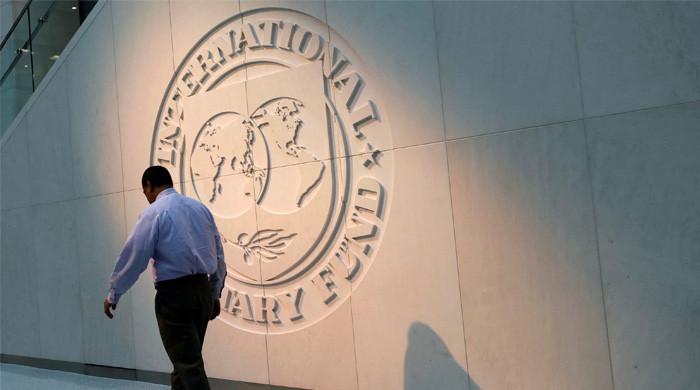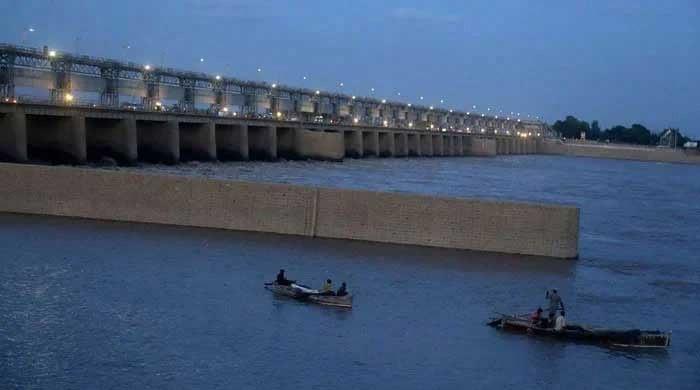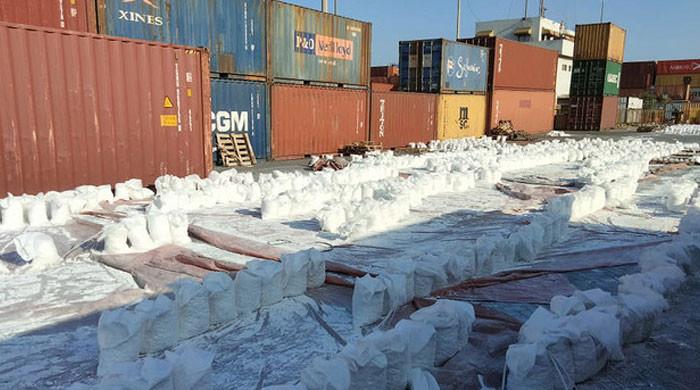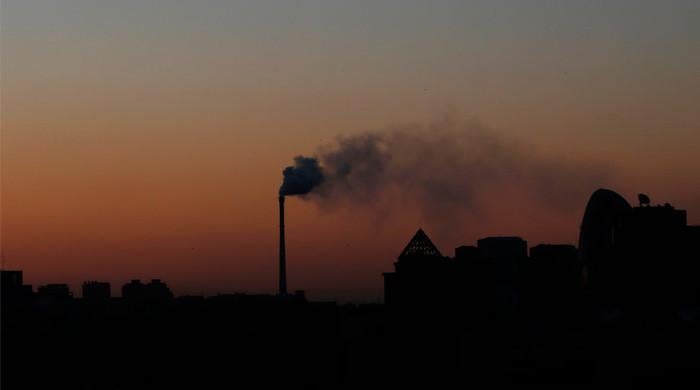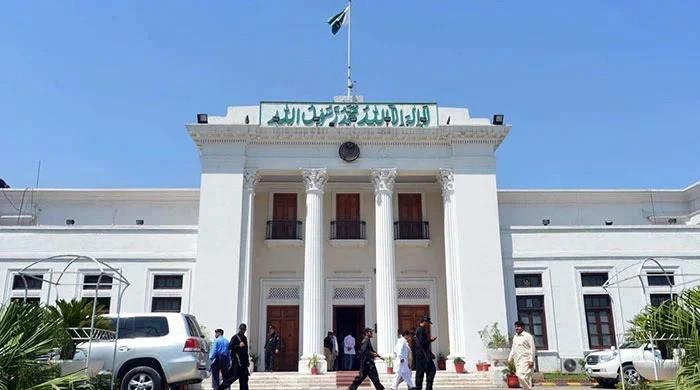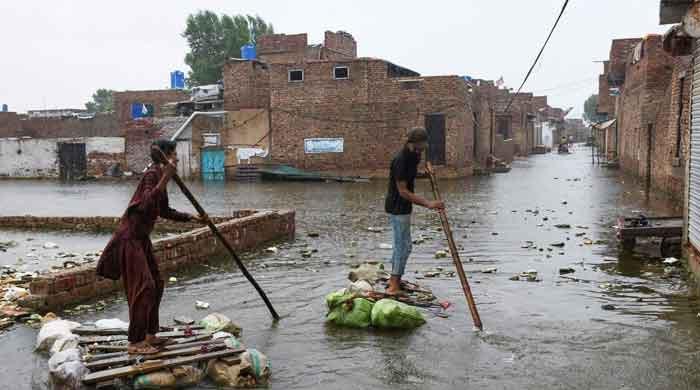Is Pakistan headed for a hunger pandemic?
About 125m people in Pakistan expected to be thrown below poverty line due to global economic shock from coronavirus pandemic, UN study finds
February 22, 2021
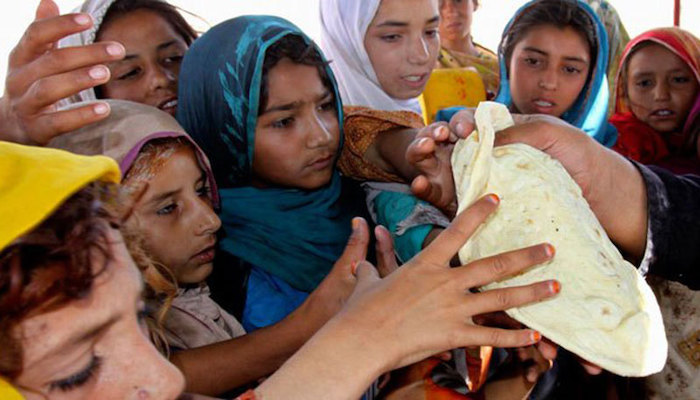
Even before the coronavirus pandemic, food security had posed a huge threat to the national security of Pakistan due to socio-economic conditions, natural disasters, terrorism and sectarian violence, among others factors.
But the threat has become even more pronounced since the pandemic. It now has the potential to further aggravate poverty in the country.
The primary challenge facing the government at the moment is to curb the spread of COVID-19 and minimise its socio-economic impacts.
Full and smart-lockdowns have led to a reduction in incomes and a disruption in food supply and production. Consequently, households across the country are being forced to cut down on the quality and quantity of their food consumption.
According to a study titled, “Rapid Assessment: Possible Impact of COVID-19 on Livelihoods, Food Security, Nutrition and Agricultural Supply Chain in Pakistan”, by the Food and Agriculture Organization of the United Nations in collaboration with World Food Programme in August 2020, an estimated 125 million people in Pakistan are expected to be thrown below the poverty line due to the global economic shock and the lockdowns.
Read more: Coronavirus: 40% households in Pakistan facing moderate to severe food insecurity
The report states: “The restrictions on movement of goods and people and lockdown are likely to cause adverse impacts on livelihood and food and nutrition security of people if not accompanied by well thought policy measures.”
It adds that around 40 to 62 million people (20-30% of Pakistan’s population) are experiencing some form of food insecurity.
However, these are conservative figures. Keeping in mind the scale of the COVID-19 emergency, it is reasonable to conclude there will be a substantial increase in the number of food insecure people in Pakistan in the coming months or years.
In this case, the vulnerable and marginalised groups such as women, children, daily-wage laborers, small- and medium-scale businesses, agriculture and other informal sectors will be disproportionately impacted, not only economically but also in terms of human cost i.e., mental trauma.
These groups rely heavily on agriculture, livestock rearing or non-agricultural jobs and they already struggle to meet their food and nutrition security needs due to limited access to food production inputs and restricted purchasing powers.
COVID-19 is expected to force these people to adopt negative coping mechanisms such as limiting the quality and quantity of their dietary intake, or compel them to sell their assets and seed stock at low prices, or borrow from the banks at exorbitant interest rates.
Read more: 2% Pakistanis cut back on food to meet basic needs amid COVID: survey
But does the government have the financial resources to support the vulnerable groups? Especially when it is already catering to those residing in the locust- and drought-affected regions in Balochistan and Sindh.
It isn’t easy to procure and distribute resources in time to hard-to-reach areas.
Last year, Prime Minister Imran Khan rolled out three initiatives under the umbrella of the poverty alleviation Ehsaas Program - Ehsaas Rashan, Ehsaas Nashonuma, and the Ehsaas Langar Program - which aimed to provide food packs or cash equivalent to vulnerable deserving beneficiaries and to serve meals to the vulnerable segments of the society.
However, these are short term initiatives to address the most pressing and immediate threat. It is unclear how these programs will sustain themselves in the long term.
It is also vital that a well thought out policy is enacted on the national level to ensure food security in Pakistan during the pandemic.
Read more: PM Imran Khan proposes 5-point agenda to uplift agricultural sectors of developing countries
Pakistan’s National Action Plan for Preparedness and Response to Coronavirus Disease highlights food security as a priority area. It further calls for the Ministry of Food Security and Research to present a National Food Security Plan to the federal government at the earliest, and tasks provincial governments to prepare their respective provincial food security plans to ensure the availability of sufficient stockpiles of basic food provisions at the territorial level.
However, till date other than the government of Khyber Pakhtunkhwa, no other provincial government nor the federal government has drafted a National Food Security Plan.
Separately, the government can also collaborate with UN partners and other humanitarian organisations to reinforce contingency food stocks and position them at strategic locations, to quickly dispatch and distribute food.
It is imperative that the government take timely measures to ensure that the health crisis of the coronavirus pandemic does not become a food crisis.
Naushad has an LLM in International and Comparative Law from George Washington University, and currently works as a research associate at the Centre for Law and Security in Islamabad




